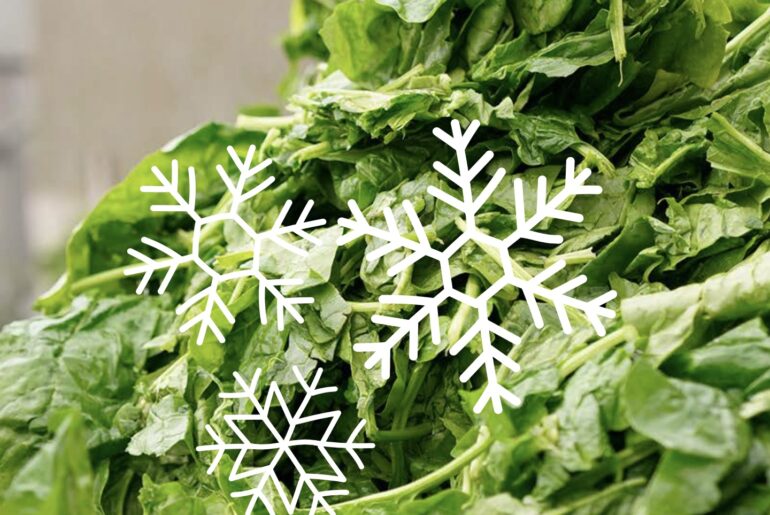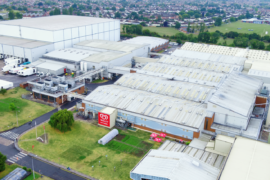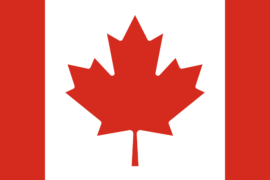Nomad Foods has released its fifth annual sustainability report, focusing on the impact Europe’s leading branded frozen food business is having, covering the period of January to December 2021.
The Feltham, England-headquartered company’s sustainability strategy, “Eating for the Planet,” is built around three pillars: Better Sourcing, Better Nutrition and Better Operations. It sets out Nomad Foods’ ambition in each area, supported by time bound targets, and is designed to help the business drive progress in line with the UN’s Sustainable Development Goals.
The report shows how the company’s focus is widening to address its impact in key areas through innovation and collaboration, including supporting its top 75% of suppliers by emissions, to set science-based targets by 2025.
“The global momentum for climate action has never been stronger and I am incredibly proud of the progress we are making across our business as we strive to bring our purpose of ‘Serving the World with Better Food’ to life and reach new milestones in a number of important areas such as nutrition and sourcing,” said Nomad Foods CEO Stéfan Descheemaeker.
He added: “With the food supply chain on course to overtake farming and land use as the largest contributor to greenhouse gases (GHGs) in the agri-food sector, collaboration with peers, suppliers and expert partners will be vital to deliver the widespread transformation that is needed to create a more inclusive and resilient food system. At a time when many consumers are facing higher food and energy bills, we are also committed to providing them with great tasting, high quality, nutritious and sustainably sourced frozen food, at a price that is affordable.”

In the CEO Foreword to the fifth annual sustainability report, Descheemaeker expressed deep concern about the ongoing war in Ukraine and the worsening humanitarian crisis there.
“While Nomad Foods has no sales to either Russia or Ukraine and no manufacturing footprint in either country, we are supporting global relief efforts and have made a donation to organizations assisting on the ground in Ukraine. We are also continuing to review any short- or longer-term supply chain impacts,” he wrote.
“There is no doubt that the situation in Ukraine brings additional complexity to an already volatile operating environment and at a time when many consumers are facing higher food and energy bills, we remain committed to providing great tasting, high quality, nutritious and sustainably sourced frozen food, at an affordable price,” added the chief executive officer. “Against this backdrop, the global momentum for climate action has never been stronger and it is clear that 2022 needs to be a year when we continue to push forward on ambitions to create a food system that is more inclusive and resilient.”
2021 Impact Report Highlights
The company is continuing to innovate to reach new milestones in important areas such as nutrition, with 92% of its products now considered a healthier meal choice (HMC). Net sales of healthier meal choices have increased by more than €440 million since 2017, when Nomad Foods launched its nutritional commitment.
Furthermore, in 2021 it was included in the Dow Jones Sustainability Europe Index for the first time, listed in the top 14 percentile globally and as one of the top four companies in Europe within the food products industry group. It also received a perfect score of 100 for Health and Wellbeing for the third consecutive year.
In addition, last year more than two million new households tried Nomad Foods’ meat-free Green Cuisine range, which remains the fastest growing frozen meat-free brand in Europe. The range continues to champion plant-based versions of family favorites with successful launches of products such as Chicken-Free Dippers and Fishless Fingers.
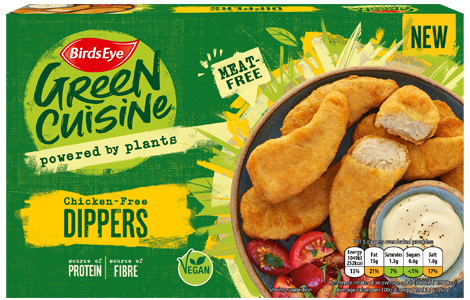
Better Operations
In 2021, Nomad Foods announced plans to significantly reduce Greenhouse Gas (GHG) emissions in line with targets approved by the Science Based Targets Initiative (SBTi) and in line with the Paris Climate Agreement as it stepped up efforts to help deliver a net-zero economy well before 2050.
Compared to the 2019 baseline, the company has reduced carbon emissions per ton of finished goods by more than 20% and absolute emissions by 14%. It has also committed to the Business Ambition for 1.5°C campaign and the UN’s Race to Zero.
Nomad Foods also increased the percentage of its packaging that is recyclable to 90% (up from 83% in 2020) and delivered a 32% reduction in edible food waste versus its 2015 baseline.
Better Sourcing
Since co-founding the MSC (Marine Stewardship Council) over 20 years ago, Nomad Foods has led the way in protecting fish stocks for future generations. As much as 98% of the fish and seafood sourced for its brands now holds MSC or ASC (Aquaculture Stewardship Council) certification. That figure puts the company very close to achieving one of its main sustainability goals to have 100% of its fish and seafood sourced from sustainable fishing and responsible farming by the end of 2025.
In addition, iglo Portugal, Findus Nordic and iglo Belgium portfolios are all on track to become 100% MSC or ASC certified by the summer of 2022.
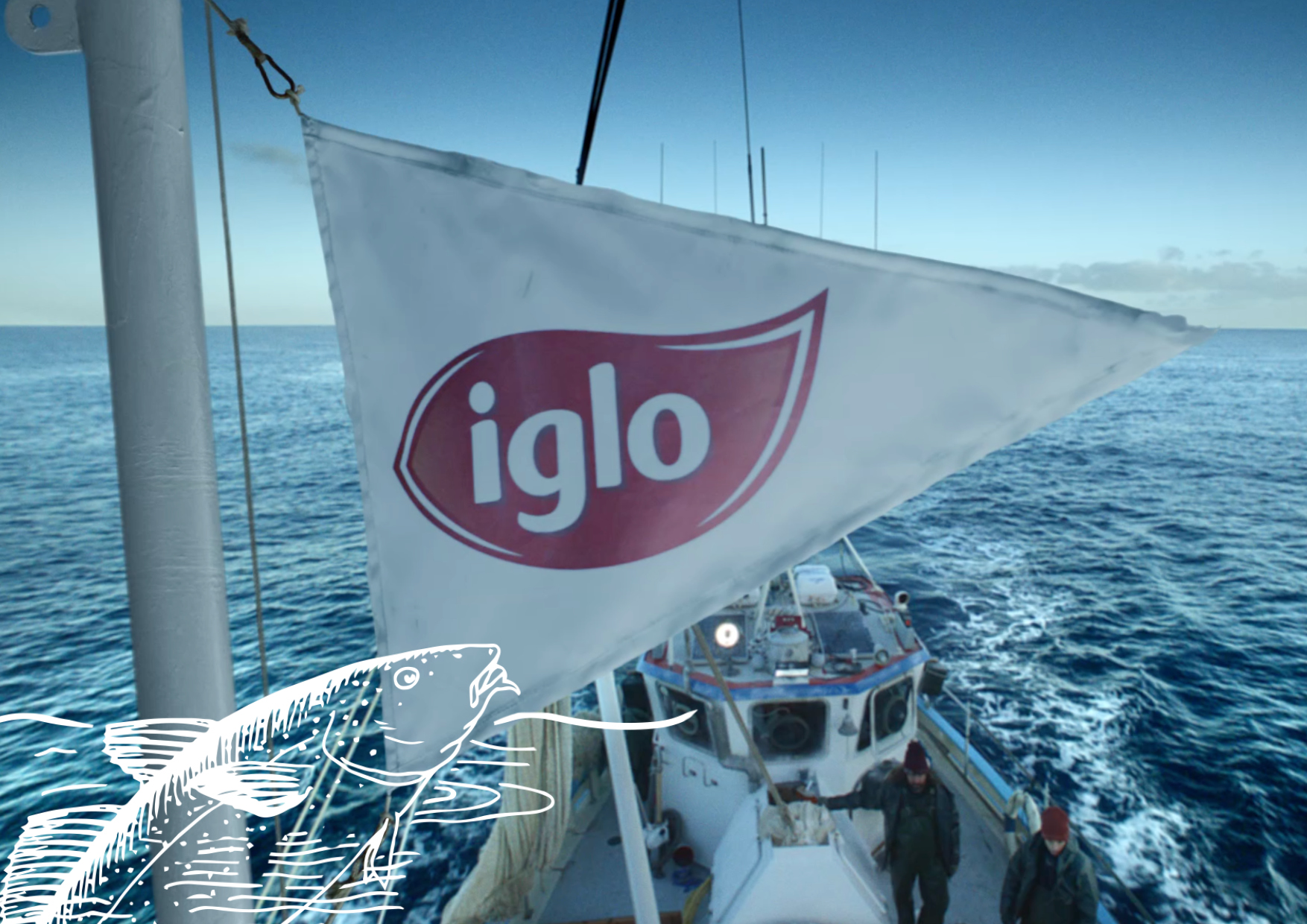
As part of Nomad Foods’ commitment to keep plastics out of the ocean, it joined the Global Ghost Gear Initiative (GGGI) in 2020. In 2021, the company conducted a risk assessment to help understand which of its suppliers were most vulnerable to gear loss. Overall, the findings suggested that more than 99% of the fish and seafood it sources were low to low/medium risk of gear loss. Nomad Foods is now working with the GGGI to help reduce the risk of losing fish gear from the small proportion of fish supplies that are potentially more susceptible to gear loss.
Sustainably grown vegetables ensures the best quality produce grows without depleting the ecosystem and threatening future yields. By the end of 2021, 88% of Nomad Foods vegetables, potatoes, fruit, and fresh herbs were grown in line with the Sustainable Agriculture Initiative Platform (SAI Platform) Farm Sustainability Assessment (FSA) Silver Level or above.

